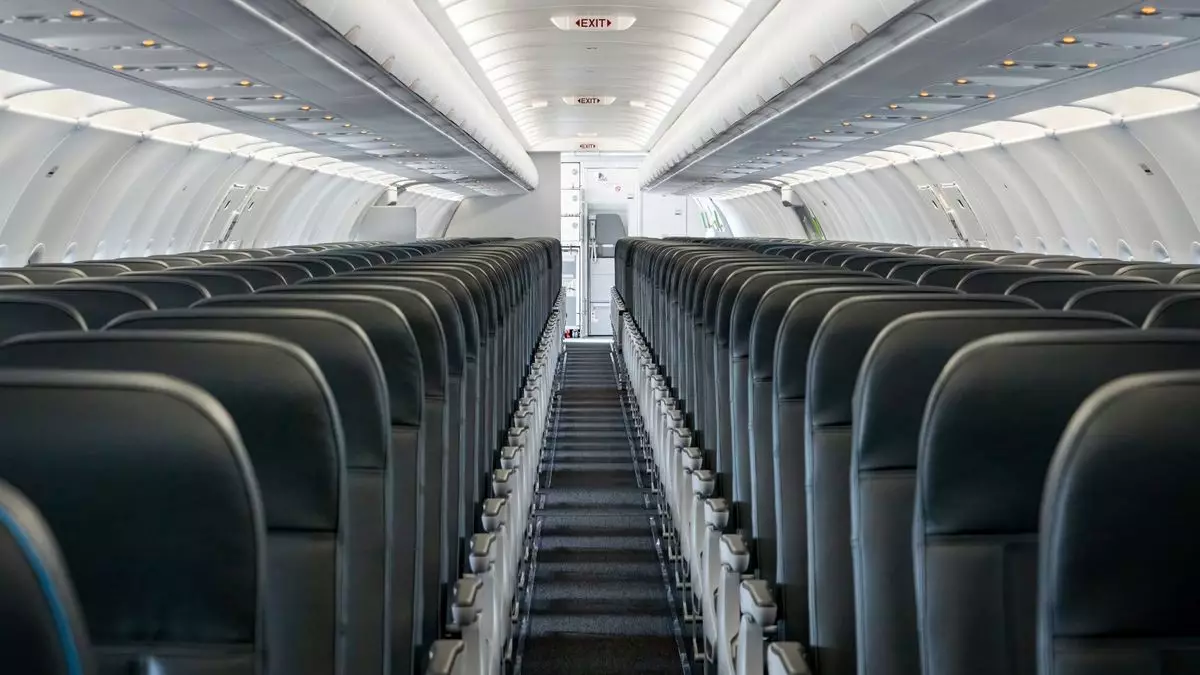Air travel has long been scrutinized for its array of fees that can vastly inflate the cost of a ticket. One of the lesser-known yet significant contributors to these inflated costs is the practice of charging passengers for seat selection. A recent report from the Senate Permanent Subcommittee on Investigations has illuminated the substantial revenue generated from this practice, revealing that five major U.S. airlines accrued a whopping $12.4 billion from seat-selection fees from 2018 to 2023. This figure positions seat-selection fees as the second-largest source of ancillary revenue, trailing only behind baggage fees.
The phenomenon of airlines relying on ancillary fees is relatively new, emerging prominently in the air travel landscape after the recession of the late 2000s. This shift allowed airlines to offer significantly lower base fares while recouping what they lost in ticket prices through fees for services that were once included. The Senate report details how legacy carriers like Delta, United, and American, alongside ultralow-cost carriers like Spirit and Frontier, have increasingly turned to these additional fees as a reliable source of income.
Interestingly, the report also highlights discrepancies in how these airlines log their revenue, particularly regarding tax liabilities associated with seat-selection fees. While American and Delta adhere to the standard federal air transportation excise tax of 7.5% for such fees, Spirit and Frontier have strategically classified their revenues in ways that lower their effective tax rates to about 2.5%. This raises questions about the broader implications for regulatory compliance and transparency within the airline industry.
The significant uptick in seat-selection revenue—rising from $2 billion in 2018 to $3 billion in 2023—points to an industry trend where additional charges are becoming de rigueur for travelers. Spirit Airlines particularly stands out with seat-selection fees now comprising 6.6% of its total revenue, up from just 5%. This transition underscores a broader trend where flying is increasingly becoming a customizable experience, with fees for services layered atop traditional ticket costs. Notably, United Airlines recently reported collecting more from seat-selection fees ($1.3 billion) than from baggage fees ($1.2 billion) for the first time.
Each airline employs varying methods for presenting these fees to customers, which can lead to frustration and confusion during the booking process. The Senate report pointed out concerns regarding practices that delay fee disclosures until late in the booking path, particularly at Spirit. This tactic, justified by the company as a means to maximize revenue, raises ethical questions about transparency and customer fairness.
The Senate subcommittee’s investigation also scrutinized the practices at Spirit and Frontier, specifically focusing on their incentive structures for gate agents to collect ancillary fees. Reports show that these airlines paid over $26 million in employee bonuses for flagging customers who had not paid for carry-on bags. Such practices could lead to potential abuse and questionable enforcement of policies, wherein customers may be charged fees for bags that technically meet the criteria of being free personal items.
Frontier Airlines has defended this commission system, arguing that it encourages compliance among customers. Still, the spike in baggage complaints since implementing these incentives indicates that agents may be acting in their financial interest rather than adhering strictly to company policies. The Senate subcommittee is thus recommending an urgent investigation into these practices by the Transportation Department to tackle potential abuses that could mislead consumers and negatively impact their travel experience.
The Evolving Landscape of Air Travel Expenses
As the airline industry grapples with these emerging challenges, the Senate’s call for more comprehensive data collection on seat-selection fees reflects an urgent need for greater transparency and accountability. The chaotic nature of airline pricing—driven by a multitude of fees and add-ons—complicates customer decision-making and can lead to consumer backlash. As the report highlighted, the existence of such practices could contribute to a perception that airlines are becoming more focused on profit generation at the expense of customer experience.
While ancillary revenues like seat-selection fees have helped airlines maintain operational viability and manage fluctuating ticket prices, the ethical implications and potential consumer exploitation are calling for scrutiny. As legislators push for tighter regulations and transparency, the future landscape of air travel expenses is bound to undergo scrutiny from both government entities and an increasingly discerning public. The circle of customers, airlines, and regulatory bodies is in need of a tighter framework that both supports airline revenue and ensures that consumer rights are protected.

